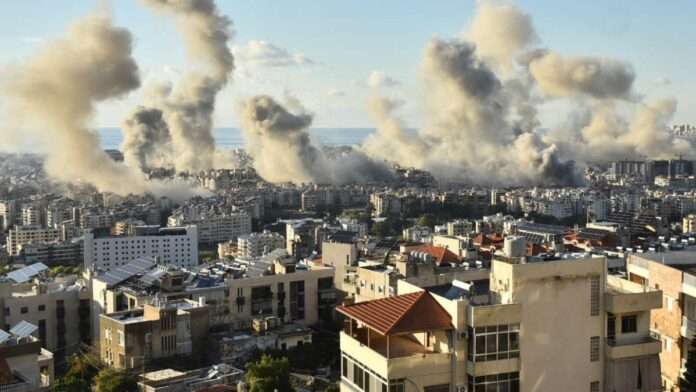India Welcomes Israel-Hezbollah Ceasefire: A Hopeful Step Toward Peace. The recent announcement of a ceasefire agreement between Israel and Lebanon’s Hezbollah has garnered global attention, with India expressing strong support for this development. After months of deadly clashes stemming from the Gaza conflict, the ceasefire is seen as a vital step toward restoring stability in the region.
India’s Stance on the Ceasefire Agreement
India’s Ministry of External Affairs (MEA) welcomed the ceasefire, reiterating the country’s long-standing call for restraint, dialogue, and diplomacy. In a statement released on Wednesday, the MEA emphasized India’s commitment to fostering peace and stability in the region.
“We welcome the ceasefire between Israel and Lebanon that has been announced. We have always called for de-escalation, restraint, and return to the path of dialogue and diplomacy. We hope these developments will lead to peace and stability in the wider region,” the MEA statement declared.
Background of the Israel-Hezbollah Conflict
The ceasefire follows a series of violent clashes between Israeli forces and Hezbollah militants, which intensified after the escalation of the Israel-Gaza conflict in September. These clashes resulted in significant casualties, including the deaths of prominent Hezbollah leaders.
The conflict, rooted in deep-seated political and territorial tensions, escalated to alarming levels over the past 14 months, causing widespread destruction and loss of life in Lebanon. According to Lebanese health officials, over 3,760 people, many of them civilians, lost their lives due to Israeli strikes during this period.
Key Highlights of the Ceasefire Agreement
The ceasefire agreement, brokered by the United States and France, outlines several critical provisions aimed at ending the hostilities:
- Duration and Withdrawal: The truce is set to last for 60 days, during which both Israeli forces and Hezbollah militants will withdraw from southern Lebanon.
- Brokered Peace Efforts: While the deal aims to provide a permanent resolution to the conflict, Israeli officials warned of immediate retaliation if Hezbollah violates the terms.
- Separate from Gaza Conflict: The ceasefire does not affect Israel’s ongoing military operations against Hamas in Gaza but is expected to alleviate tensions along the Israeli-Lebanese border.
Global Reactions to the Ceasefire
Israeli Prime Minister Benjamin Netanyahu expressed gratitude to outgoing US President Joe Biden for his role in securing the agreement. During a phone call, Netanyahu thanked Biden for his involvement and stressed that Israel would maintain its freedom to enforce the terms of the truce.
Netanyahu also highlighted that the longevity of the ceasefire hinges on developments in Lebanon. He remarked that the truce allows Israel to shift its focus to other pressing concerns, including its ongoing campaign against Hamas and addressing the broader “Iranian threat.”
US President Joe Biden described the ceasefire as a significant step toward peace, expressing hope for a long-term resolution to the conflict. French diplomats also played a pivotal role in mediating the agreement, underscoring the importance of international collaboration in addressing regional disputes.
Impact on the Region and Path Forward
The ceasefire agreement brings a temporary respite to the region, which has been marred by violence and political instability. For the people of Lebanon, particularly in the southern regions, the truce offers a glimmer of hope for safety and recovery.
However, the challenges to lasting peace remain significant. The deep-rooted animosities between Israel and Hezbollah, coupled with ongoing tensions in Gaza, continue to threaten regional stability. The international community’s role in ensuring adherence to the ceasefire terms and fostering dialogue will be crucial in preventing a relapse into violence.
Conclusion
India’s support for the ceasefire reflects its broader vision for peace and stability in the Middle East. As the international community monitors the implementation of the agreement, the hope is that this truce will pave the way for meaningful dialogue and long-term conflict resolution.
The ceasefire serves as a reminder of the importance of diplomacy in resolving even the most entrenched disputes. Whether it can lead to sustained peace in the region will depend on the commitment of all parties involved to uphold their promises and prioritize the well-being of civilians caught in the crossfire.



